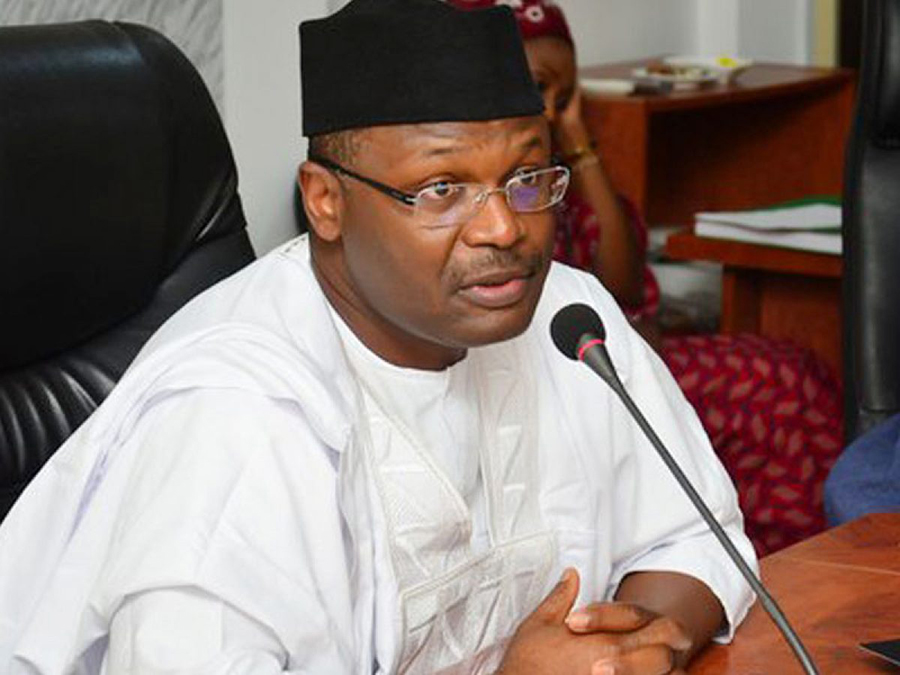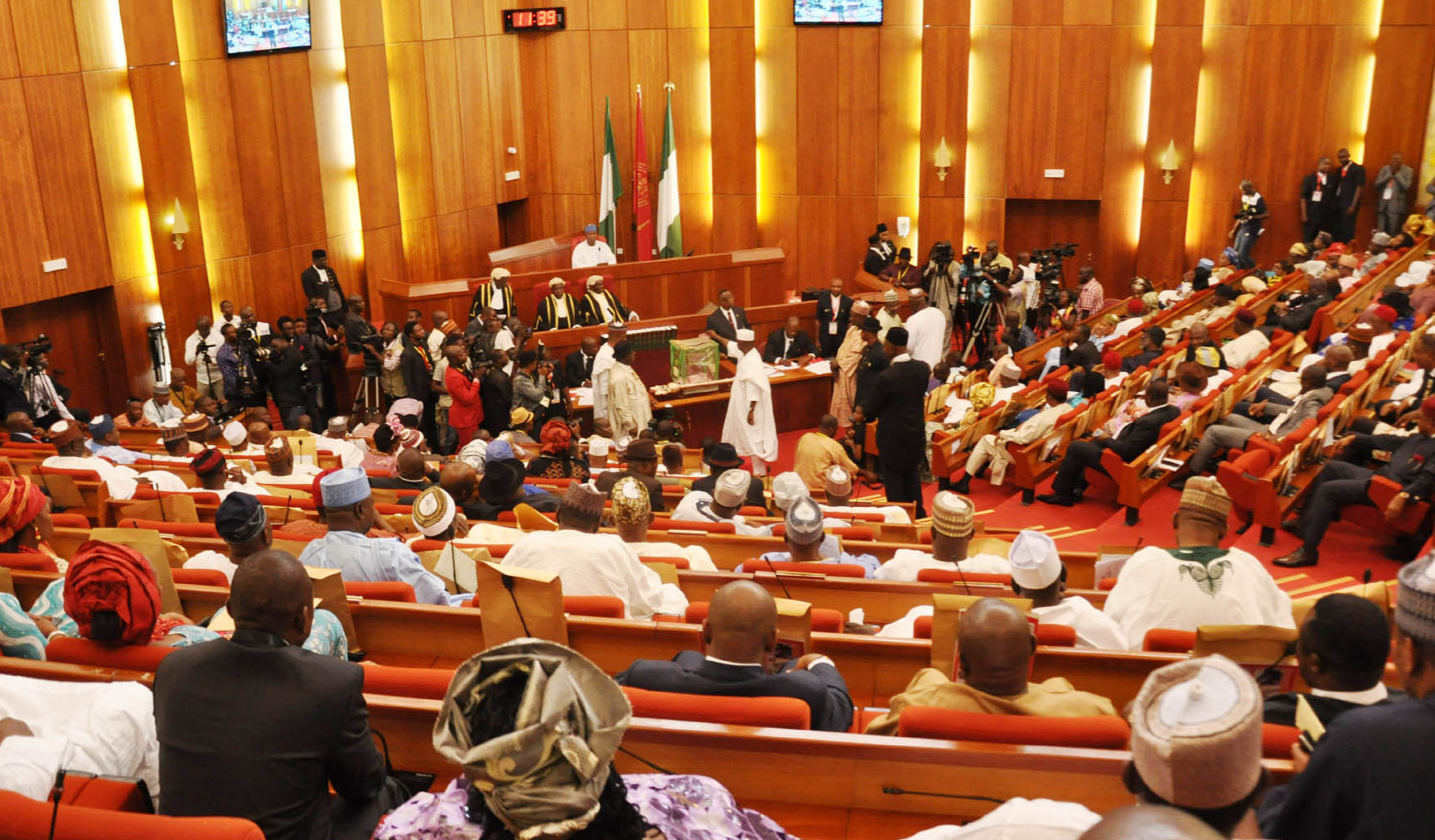Health
COVID-19: FG Traces 4,370, Says Buhari Is Not Coughing
Published
4 years agoon
By
Editor
The Federal Government said it is still on the trail of 4,370 people of interest over COVID-19 pandemic.
It expressed regrets that most of the returnees from abroad submitted wrong addresses.
It also said President Muhammadu Buhari is not coughing after testing negative to Coronavirus.
READ ALSO: BREAKING: COVID-19: Edo Speaker Tests Positive As Obaseki Goes Self-isolation
It said the President is fit and fully in charge of the country.
The Minister of Information and Culture, Alh. Lai Mohammed, made the disclosures at a briefing on COVID-19 update.
He said: “We have 4,370 people of interest whom we are tracing. We urge those who have had contact with suspected cases to
immediately report to the authorities. We urge Nigerians to support the authorities in this regard.
READ ALSO: COVID-19: Edo Govt Considers Purchase, Resale Of Hand Sanitizers, Face Masks To Residents
“We are on the verge of reaching the level of community spread. We must stop this immediately or we will record exponential cases in the days ahead. There is no better way to say this.”
Accroding to NATION, the Minister said the government was worried that some of the returnees submitted wrong addresses.
“Let me say, without mincing words, that we are not getting the kind of cooperation that this moment deserves from Nigerians. Many are busy engaging in meaningless criticisms instead of complying with the stipulated directives to keep people safe.
”Some Nigerians who flew into the country from overseas filled wrong addresses and phone numbers in their forms, making it difficult to trace them when the need arises.
READ ALSO: COVID-19: Edo Govt Bans Large Social Gathering, Gives Out Emergency Numbers
“Some Nigerians defied orders to stay away from large gatherings while some religious leaders willfully flouted the directives to ensure social distancing.
“The government is doing its best but we need the citizens to do their best too. We have now gone past the stage of persuasion. It’s time for strong enforcement.”
On the actual state of health of President Buhari, the minister was emphatic that “Mr. President is well and fully in charge of the country.
READ ALSO:‘Engage In Child Trafficking, Abuse And Go To Jail’, Attorney-General Warns
”Some have alleged that the President is coughing, it is fake news.”
(NATION)
PHOTO: File)
You may like

The Lagos state suspected cholera cases have risen to 421.
The Commissioner for Health, Akin Abayomi disclosed this on his Instagram handle @profakinabayomi on Saturday.
“As of June 20, 2024, an additional four suspected cholera cases have been reported, as illustrated in the accompanying graph,” he wrote.
He noted that the Emergency Operations Centre in collaboration with all relevant partners is actively engaged in contact tracing, community-based surveillance, awareness campaigns, sample testing, and ensuring that confirmed cholera cases receive appropriate medical treatment.
READ ALSO: Two Suspects Arrested For Stealing Car From Mosque During Juma’at Prayer
On Friday, the commissioner confirmed 35 cases out of the 417 suspected cases and 24 deaths across 20 Local Government Areas in the state.
The cases were reported from Agege, Badagry, Ikeja, Mushin, Ajeromi-Ifelofun, Epe, Ikorodu, Ojo, Alimosho, and Eti-Osa.
Others were Kosofe, Oshodi-Isolo, Amuwo-Odofin, Ibeju-Lekki, Lagos Island, Shomolu, Apapa, Ifako-Ijaiye, Lagos mainland, and Surulere.
Cholera is a food and water-borne disease caused by ingesting the bacteria— Vibrio cholerae — in contaminated water and food. Cholera can cause severe acute watery diarrhoea, and the severe forms of the disease can kill within hours if left untreated.
In Nigeria, cholera is an endemic and seasonal disease, occurring annually mostly during the rainy season and more frequently in areas with poor sanitation.
READ ALSO: Police Arrest 28yr Old Suspected Cultists, Recover Gun In Delta Community
The World Health Organisation on Thursday announced a spike in cholera in several regions of the world, with almost 195,000 cases and over 1,900 deaths reported in 24 countries since the start of 2024.
WHO said the Eastern Mediterranean Region reported the highest number of cases, followed by the African Region, the Region of the Americas, the Southeast Asia Region, and the European Region.
The global health body, however, noted that there are no reported cases in the Western Region, according to its bulletin released on Wednesday.
It said it exhausted its global stockpile of Oral Cholera Vaccines by March but was able to exceed “the emergency target of five million doses in early June for the first time in 2024.”

By Silver Yeibake
Autism, commonly known as Autism Spectrum Disorder (ASD), is a neurodevelopmental disorder that affects communication, social interaction, and behavior. Autism is referred to as a spectrum condition since it can manifest in a variety of symptoms and abilities. While the actual cause of autism is unknown, evidence suggests that genetic and environmental factors interact to influence its development.
The risk factors include a sibling with autism, advanced age of parents, exposure to certain air pollutants and pesticides before birth, extreme prematurity, mothers with diabetes, immune system disorders or obesity, any difficulty with delivery leading to deprivation of oxygen to the baby’s brain, fever during pregnancy, lack of certain vitamins minerals during pregnancy, and certain genetic conditions, such as Down, fragile X, and Rett syndromes.
“Risk factors can not on their own cause a disease. However, they can increase the likelihood of that disease in a person.”
It is important to know that contrary to trending claims online, there is no scientific or medical evidence that vaccines or consumption of sugar are risk factors for autism.
READ ALSO: Kidney Stones: What You Need To Know
Autism is defined by difficulties in social interaction and communication. Individuals with autism may struggle to grasp social cues, maintain eye contact, and engage in typical back-and-forth conversations. Some people may also engage in meaningless, repetitive actions, such as hand-flapping or rocking, and have strong interests in specific areas.
It is essential to remember that autism is a lifelong diagnosis, but with early intervention and adequate care, people with autism can live fulfilling lives.
Autism treatment frequently includes behavioral therapy, speech therapy, occupational therapy, and social skills training. Each individual with autism is unique, thus interventions should be tailored to meet their personal needs and strengths.
In spite of the difficulties that autism can cause, many people with autism possess unique talents and abilities. Some people may succeed in fields such as music, art, mathematics, or programming, thus it is important for society to acknowledge and honor the qualities and achievements of people with autism.
In summary, autism is a complicated and diverse disorder that affects individuals in various ways. By raising autism knowledge, understanding, and acceptance, we can build a more inclusive society in which people with autism can thrive and attain their full potential.
Dr. Yeibake, Weriwoyingipre Silver.
Senior Registrar,
Faculty Of Pediatrics,
WACP
Health
Don Confirms ‘Zobo’ As Antihypertensive Therapy
Published
5 months agoon
March 10, 2024By
Editor
The Deputy Vice Chancellor, University of Nigeria Enugu Campus, UNEC, Prof. Daniel Nwachukwu, after research findings and clinical trials in both animals and human, has confirmed that Hibiscus Sabdariffa, popularly called ‘zobo’ drinks, has all the curative potentials as an antihypertensive therapy.
Nwachukwu, who is a Professor of Cardiovascular Physiology in the university, stated that the antihypertensive effectiveness of the Hibiscus Sabdariffa (zobo) was comparable to those of known antihypertensive drugs that are popular in the retail pharmacies, adding that zobo’s availability, cheapness and absence of side effects make it attractive as an alternative therapeutic agent in mind to moderate hypertensive subjects.
He however cautioned that care should be applied to avoid abuse in the consumption of Hibiscus Sabdariffa (zobo), adding that the therapy could interfere with some anti-malaria drugs while its high dose was also reported to have toxic effects on the liver and kidney.
READ ALSO: How Airline Pilots Fell Asleep Mid-flight – Safety Agency Reveals
Nwachukwu’s discoveries were contained his 201st Inaugural Lecture of the University of Nigeria with the topic “The Marriage Between the Cardiovascular System and Hibiscus Sabariffa: Let no One Put Asunder,” delivered at the moot court hall, Law faculty of the University of Nigeria, Enugu campus.
The DVC warned that Hibiscus Sabariffa consumption is not recommended for persons with low blood pressure because of its well established hypotensive action, advising that during combined therapy with antihypertensive drugs, the blood pressure, BP, must be carefully monitored.
He recommended that industrialists and investors should support large scale production of Hibiscus Sabariffa beverage and its distribution to rural communities in Nigeria, particularly since the raw materials (Hibiscus Sabariffa calyx and water) are cheap and readily available.
READ ALSO: Man Stabs Two Women To Death At A Mexico Varsity
According to Nwachukwu, “This lecture is intended to draw the public attention to our research efforts and unveiling the antihypertensive ability of Hibiscus Sabariffa which is called zobo in our common parlance. What we used for our studies was the same concentration as the locally produced zobo, and we found out that it exerted significant antihypertensive ability, in some cases even higher than the antihypertensive drugs and also did combination therapy with other antihypertensive drugs.
“What is significant is that this zobo is within us, it’s very cheap and it does not have any side effects compared to other antihypertensive agents. The raw material is just to buy zobo, prepare it under hygienic conditions, boil water and put it, sieve it and drink. It may have a sour taste but we do not encourage people to add things like pineapple or sugar in order to make it sweet, because once you do that, you are diluting or reducing its antihypertensive effectiveness.
“We have demonstrated it, both in animal studies and in humans. We are the first to do clinical trials, using mild to moderate antihypertensive Nigerians and we found it very useful. Some of the results show that one can actually use it and we equally saw that you can use it to prevent even diabetes from occurring because it reduces the rise in glucose level.”
READ ALSO: Adolescent Girls Face Risks Of Sexual Violence – UNICEF
Vice Chancellor of the University, Professor Charles Igwe while summarizing the lecture said that the lecture was in three dimensions; one on health grounds, another in academics and the third an economic value.
“Its economic in the sense that we can also begin to use what God has given us to make money. Maybe because God gave us everything in abundance in this country, we don’t recognize the simplest things God gave us in our environment. Therefore, what we are saying is that we should begin to, at all these pure water productions and incorporate zobo production so as to make money out of it.
“The university has made its contribution through our laboratories and it’s now left for the business community and the industries to come and buy into it and start widening it and make it very economic,” Igwe suggested.
Vanguard

FULL LIST: Those Supporting, Against Aug 1 Nationwide Protest

Religious Leaders Harp On Tolerance At Grassroots Sensitisation Programme In Benin

Act Fast On Oil Spill Rocking Forcados Area, CSOs Task FG, Delta Govt
Trending

 News2 days ago
News2 days agoNationwide Protest: The Killer Is Afraid Of Death [OPINION]

 Metro4 days ago
Metro4 days agoConfusion As Female Passenger Dies In Lagos Keke Marwa

 News3 days ago
News3 days agoJUST IN: Tinubu Sends ₦70,000 Minimum Wage Bill To NASS

 Entertainment3 days ago
Entertainment3 days agoActress Denies Alleged Affair with Senate President Akpabio

 News3 days ago
News3 days agoPAP: Again, Otuaro Meets Stakeholders, Re-emphasises Importance Of Collaboration

 Headline2 days ago
Headline2 days agoBREAKING: SGF, NSA, Ministers In Emergency Meeting Over Planned Nationwide Protest

 News1 day ago
News1 day agoBREAKING: INEC Can Handle Local Government Elections, Says Chairman Yakubu

 Politics1 day ago
Politics1 day agoPlace Obaseki On Security Watch List, Edo APC Urges FG, As State Govt Kicks

 Headline3 days ago
Headline3 days agoElon Musk Opens Up About His Transgender Child

 News3 days ago
News3 days agoJUST IN: Senate Passes Minimum Wage Bill From N30,000 To N70,000























